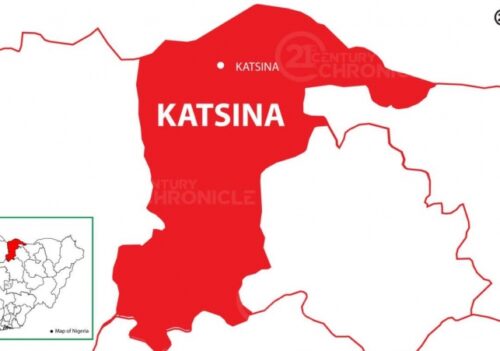Africa
Katsina @38: From Babangida’s Decree to a Hub of Progress -By Usman Salisu Gurbin Mikiya
As an agrarian state, agriculture remains the backbone of Katsina’s economy, the state is known for producing millet, maize, guinea corn, groundnuts, cotton, sesame, and livestock.

Katsina State was carved out of the former Kaduna State on 23rd September, 1987, by the military government under the leadership of General Ibrahim Badamasi Babangida.
Since then, like the air we breathe, Katsina State has continued to shine among its peers, attracting unprecedented development and establishing itself as an entity of its own, giving millions of Katsinawas hope for a brighter future.
Indeed, thirty-eight years is not thirty-eight days, Katsina State is blessed in many aspects of human endeavor, which must be celebrated, it is also a moment for reflection on its achievements, challenges, and the journey ahead, As Lao Tzu once said, “Growth is the only evidence of life.”
Popularly known as the “Home of Hospitality,” Katsina is one of the core northern states with a deep Islamic heritage and a rich tradition of scholarship dating back to ancient times.
The state is made up of 34 local government areas, with Katsina city as its capital, since its creation, it has been led by visionary leaders and intellectuals
Furthermore, beyond material blessings, Katsina State has produced two democratically elected presidents namely, Umaru Musa Yar’Adua and Muhammadu Buhari, both of blessed memory.
With a population estimated between 10–12 millions, making it the third and fourth most populous state in the North West and in Nigeria, Katsina has recorded remarkable progress in human development, infrastructure, and resource management across its entities.
Leadership
Katsina State has witnessed the leadership of both military administrators and elected governors, so far eleven leaders have governed the state, each contributing in different ways to its development.
Among them are: Abdullahi Sarki Mukhtar from September 1987 to July 1988, Lawrence Onoja from July 1988 to December 1989, John Madaki led from December 1989 to January 1992, and Saidu Barda Led the State from January 1992 to November 1993, while Emmanuel Acholonu who is Military Administrator head the State from 9th December 1993 to 22nd August 1996 respectively.
Other heads of Katsina State are Samaila Bature Chamah Military Administrator from 22nd August 1996 to August 1998, Joseph Akaagerger Administrator from August 1998 to May 1999, Umaru Musa Yar’Adua from May 1999 to May 2007, Ibrahim Shema from May 2007 to May 2015 and Aminu Bello Masari from May 2015 to May 2023, while Dikko Umar Radda from 29 May 2023 and currently the incumbent of the state.
Education
In education, Katsina has long been recognized as a land of scholars, over the past 38 years, successive governments have invested heavily in primary and secondary schools, as well as federal, state, and private higher institutions of learning and this has given millions of Katsinawas the opportunity to pursue their dreams.
Katsina State also boasts of renowned scholars whose contributions to Western and Islamic knowledge extend beyond Nigeria.
Healthcare
From having little to no healthcare facilities at inception, Katsina now hosts a Federal Teaching Hospital, Federal University of Clinical Sciences, Federal Medical Centre, General Amadi Orthopedic Hospital, general hospitals, the Umaru Musa Yar’Adua Maternity Centre, Dialysis, Air force hospitals and Imaging Centres, among others it will soon being marked as a hub for medical services.
Importantly, each of the 361 wards in the state has at least one functional primary healthcare centre, ensuring access to basic medical care for residents, depending on the nature of the illness.
Culture and Tradition
Katsina, with its two First Class Emirates to include Katsina and Daura, remains a custodian of Hausa-Fulani culture, Islamic scholarship, and the legendary heritage of Bayajidda and Gobarau monument.
Cultural festivals and durbars, held periodically across the two Emirates is a testimony of Culture preservation.
Infrastructure
Katsina has steadily built a reputation for infrastructural development with Umaru Musa International Airport to Railway road that is under construction, it has an expanding road network connecting communities across the state with more projects remain ongoing.
Agriculture
As an agrarian state, agriculture remains the backbone of Katsina’s economy, the state is known for producing millet, maize, guinea corn, groundnuts, cotton, sesame, and livestock.
Katsina State remains my home and my pride. At 38, it stands tall, blessed, and full of promise for greater development in the years ahead.
Usman Salisu Gurbin Mikiya
usmangurbi@gmail.com






















